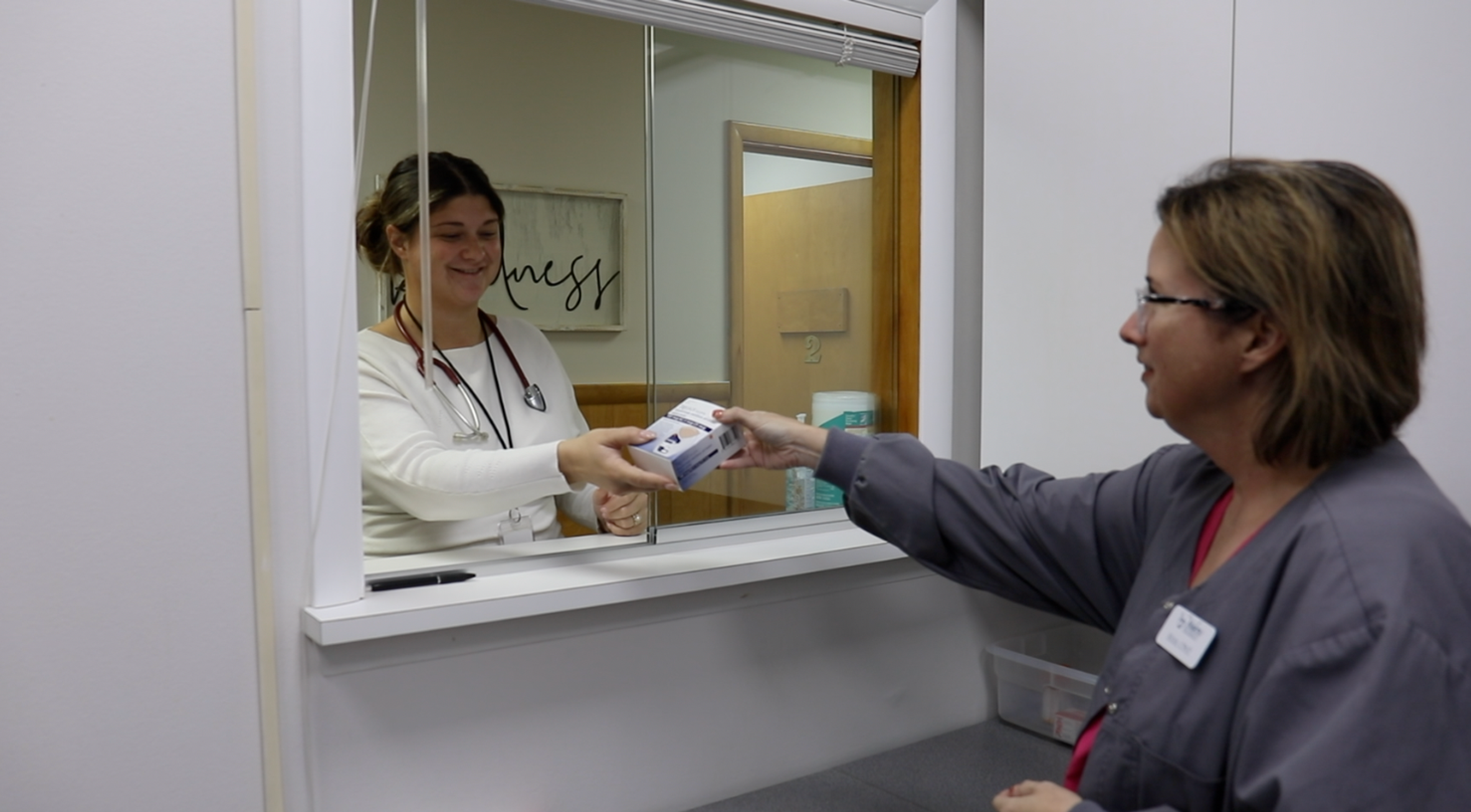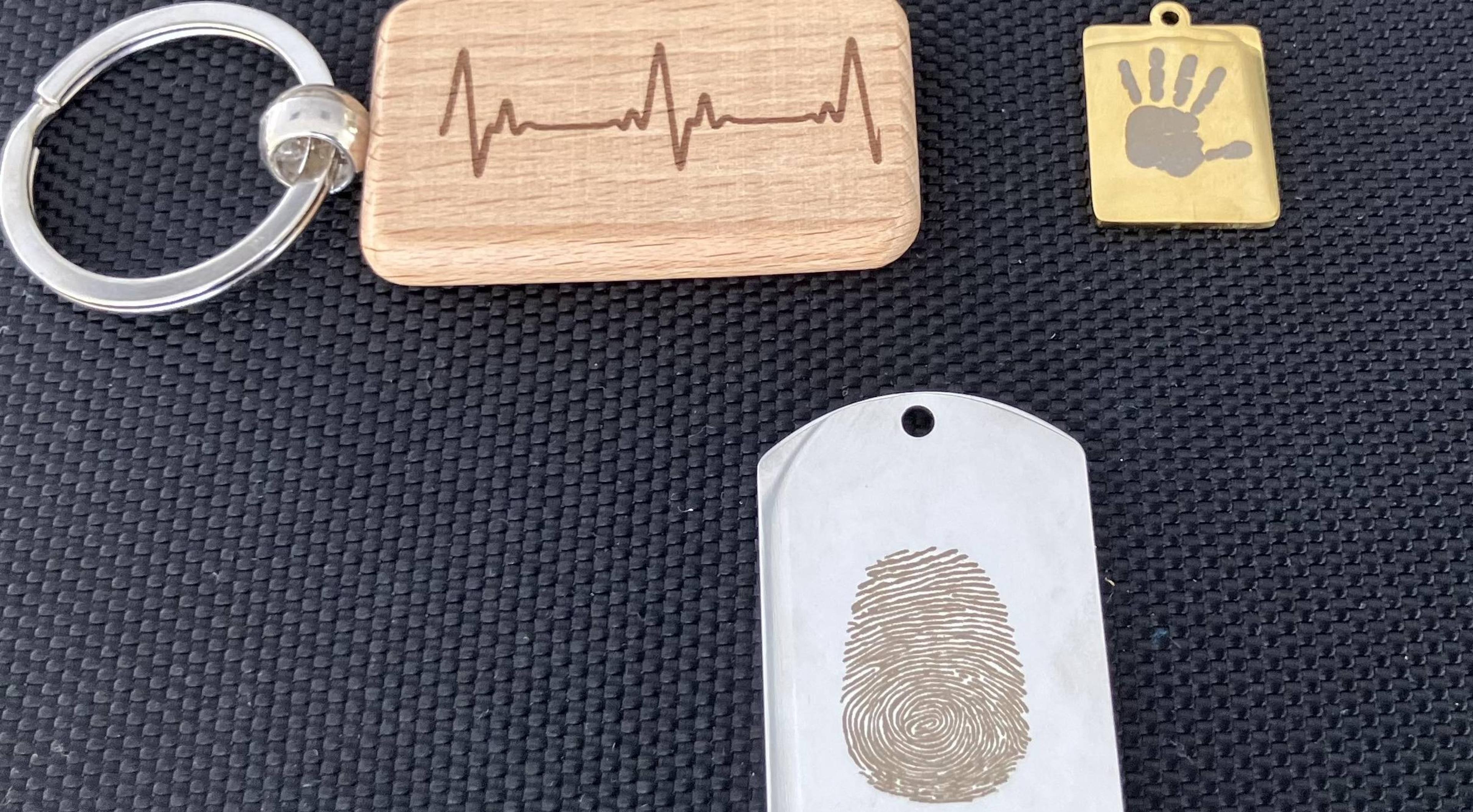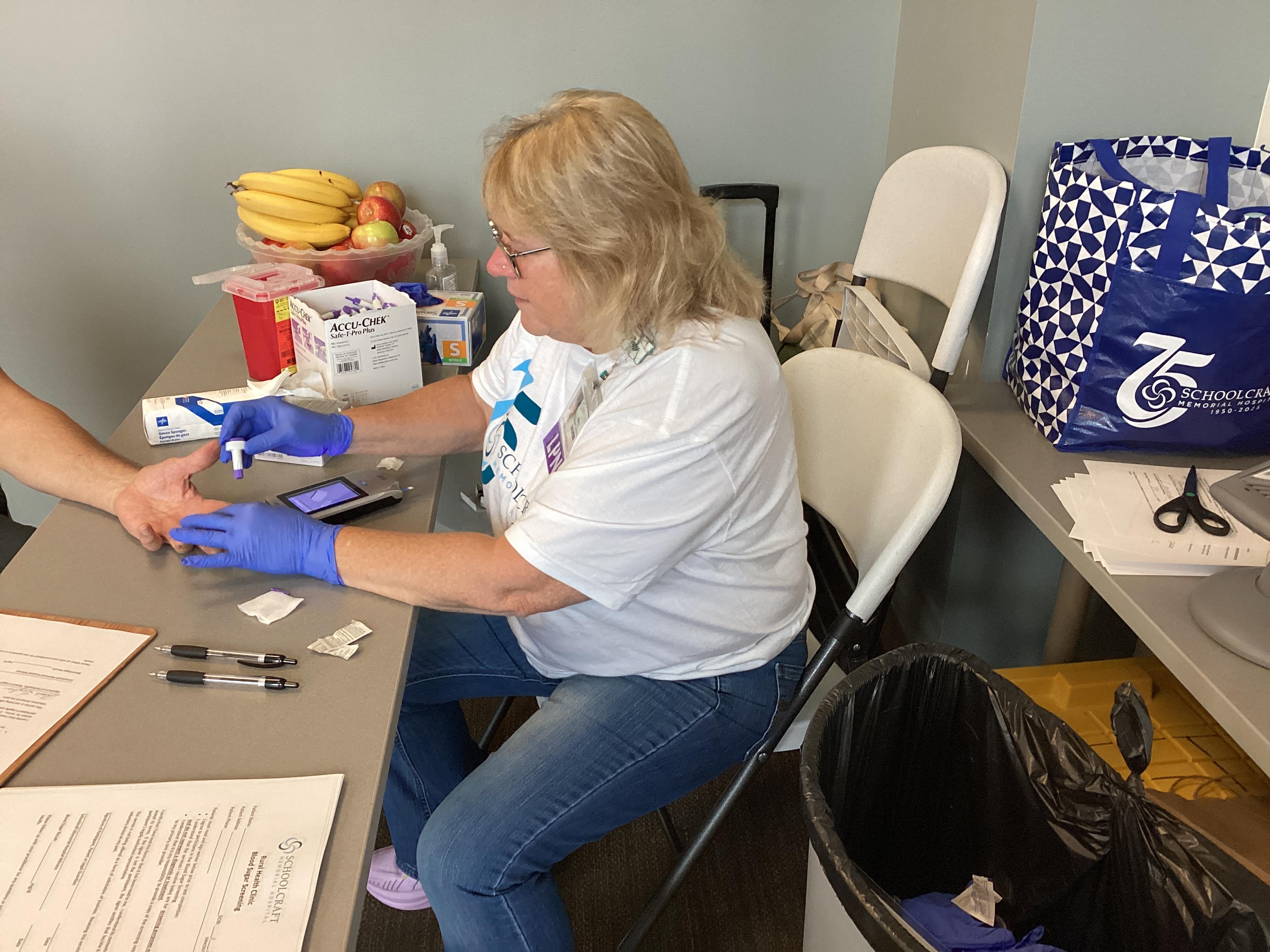Eastside Community Network Addresses Flood Damage, Air Quality and Sustainability of Vulnerable Neighborhood Homes in Detroit
Jake Newby
| 5 min read
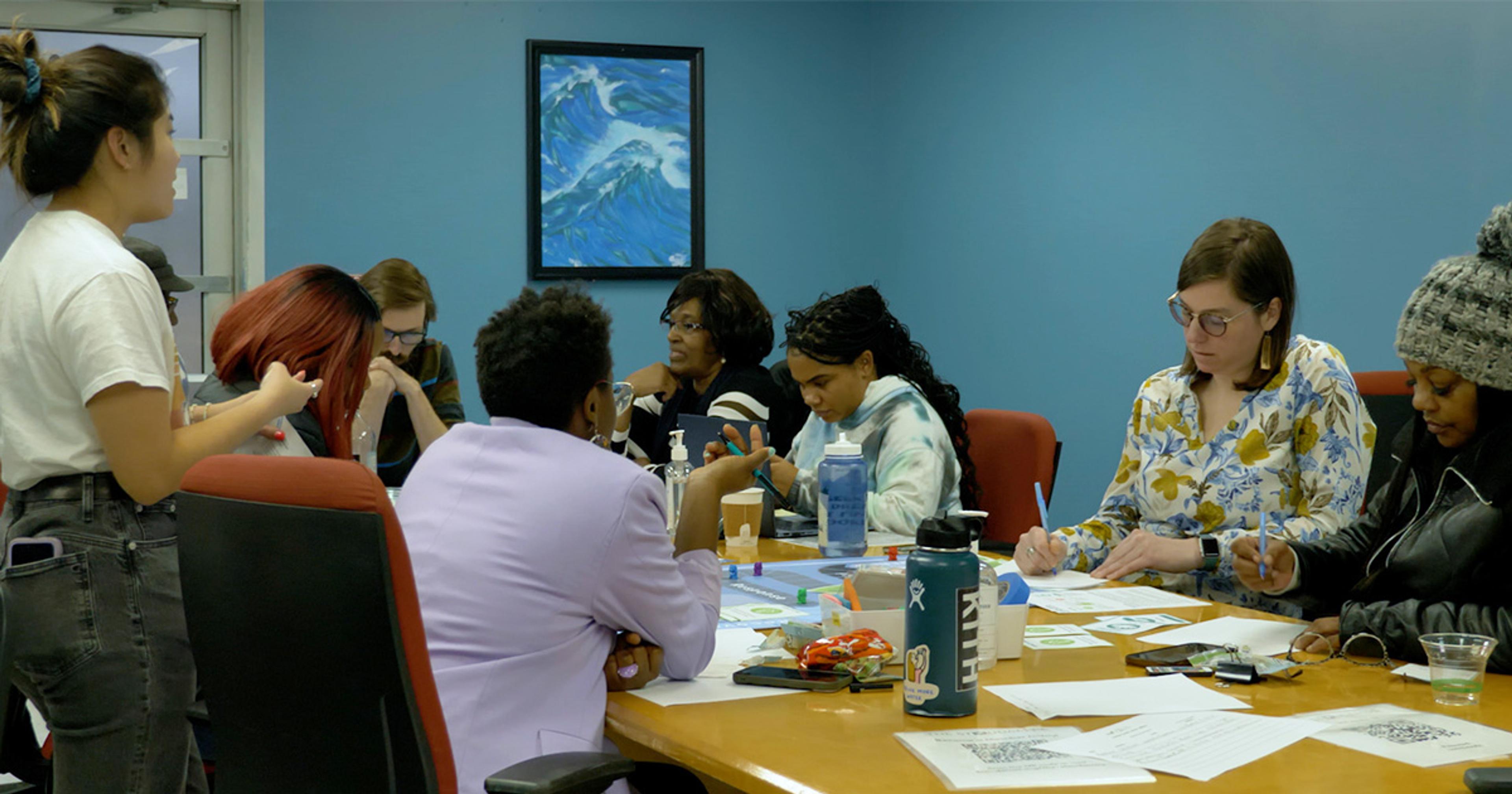
When we think about hazards to our health it’s easy to glaze over environmental factors. We know that smoking cigarettes, drinking alcohol, eating poorly and rarely exercising can catch up to us. We recognize the potential for physical injury in certain situations. But we don’t always consider the environmental hazards – like the bacteria in standing flood water, the many polluting industries surrounding Detroit communities and the lack of urban tree cover – that impact our communities every day.
Detroit’s Eastside Community Network (ECN) recognizes those hazards, and with the help of the Blue Cross Blue Shield of Michigan (BCBSM) Foundation’s Community Health Matching Grant, ECN is equipped with more resources to help flatten climate health inequities in Detroit’s underserved and low-income communities.
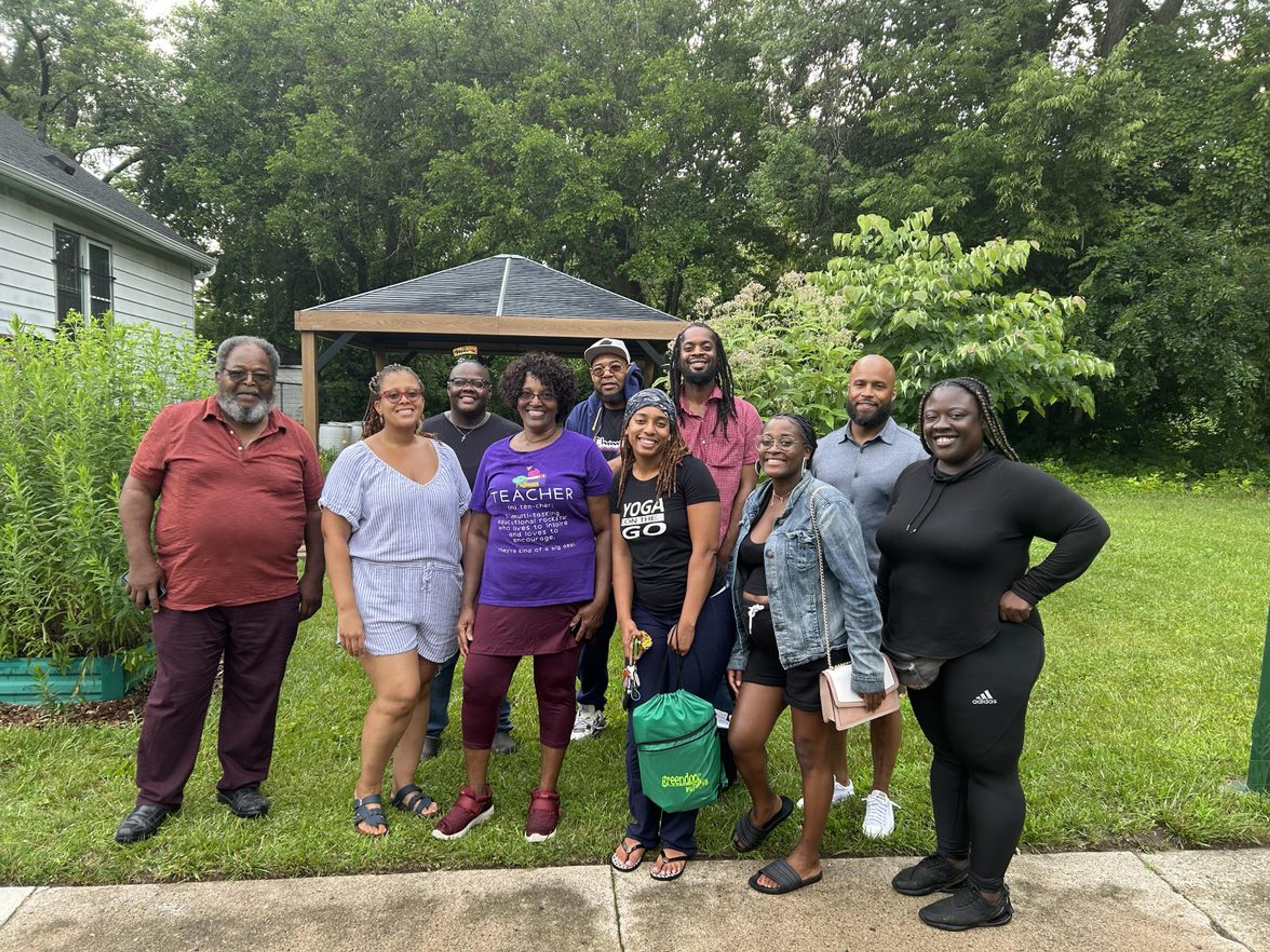
“We recognize that there’s a zip code difference, that if you live in one zip code your life expectancy can be dramatically shorter than if you live in another,” said President and CEO of Eastside Community Network, Donna Davidson. “In communities adjacent to Grosse Pointe, Grosse Pointe Park, and Grosse Pointe Farms you can find that there’s a 10-year difference in life expectancy. And a lot of that is either based on the quality of housing health, industrial and truck pollution, the level of tree cover in the area, and other variables we’re still trying to measure.”
Climate adaptation and the mitigation of climate risks on Detroit’s Eastside are top priorities for ECN. In 2014 and 2016, when floods ravaged the homes and basements of thousands of residents on Detroit’s Eastside, many areas didn’t have the skills, resources, access to disaster recovery services, and/or the physical capacity to remediate mold and other toxins in comparable to resources available to their eastern suburban neighbors. This is the type of climate-crisis that ECN and its community partners work to help mitigate.
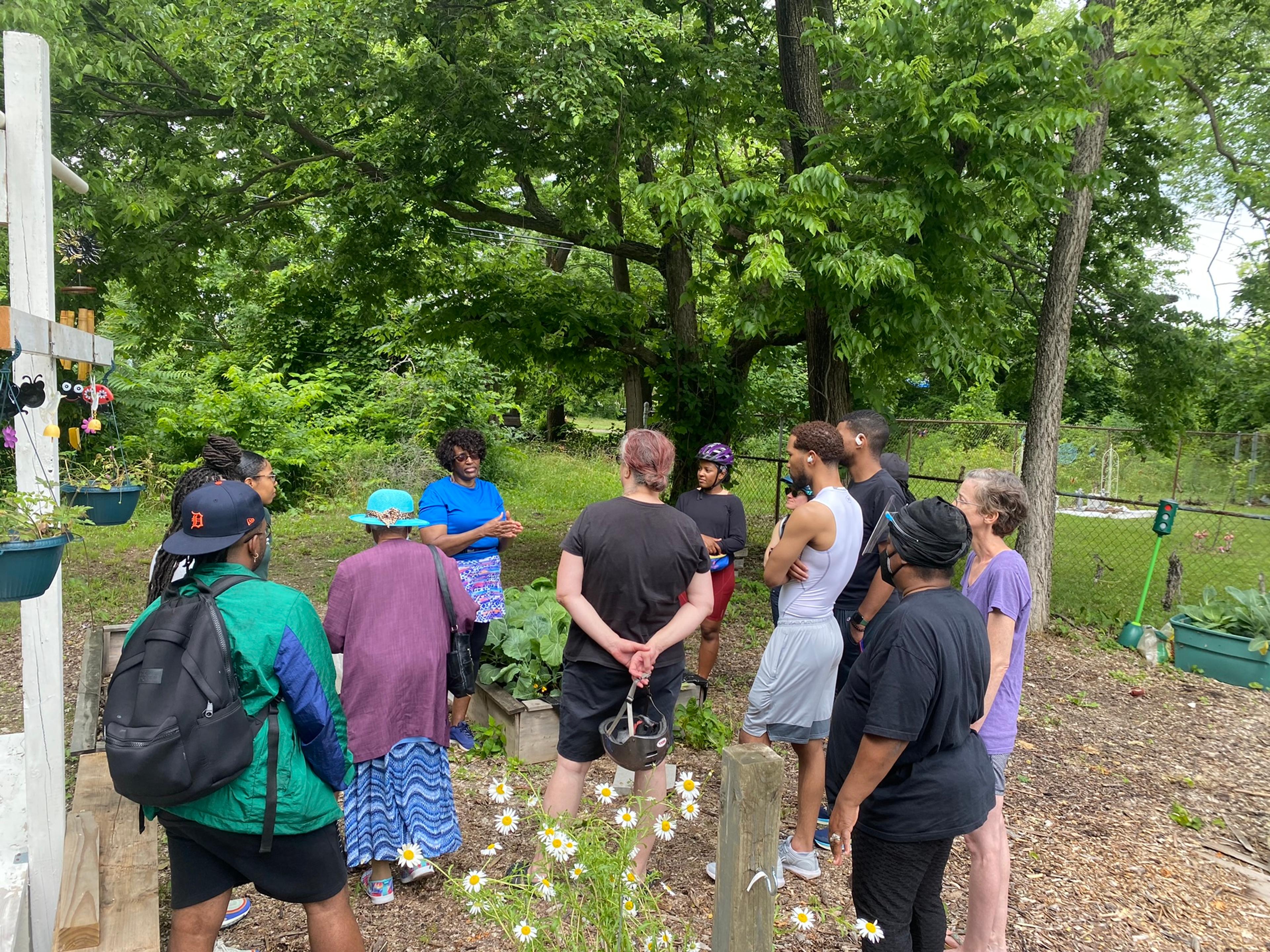
“In 2021, there was more flooding, and we started to notice a few things,” Davidson said. “Grosse Pointe Park was flooded just as much as Detroit, but Grosse Pointe Park had remediating companies come out to remediate their floodwater immediately. Detroit residents noted that when they called these companies, they did not serve Detroit in a lot of instances. And even companies that did service Detroit, charged prices well beyond the means of most residents, where median incomes are half of the area median income.”
In response to the 2021 floods, ECN helped distribute mold remediation kits, so people could remove some of the mold on their own. They also hired companies and contractors as best they could to get as many hands-on-deck as possible and help clean. The BCBSM Foundation’s $28,000 grant will allow ECN continue efforts like these. Davidson said the nonprofit will use grant funds to develop an upcoming curriculum for Wayne State University (WSU) School of Social Work students, one that will equip them with the knowledge and resources necessary to respond to the climate crisis in Detroit’s most vulnerable communities.
How ECN’s partnership with WSU might impact Detroit in the coming years
The under-housing of residents is a major target area for ECN, one that the partnership with WSU’s School of Social Work will address once the curriculum is developed and eventually completed.
“There was a study that found that 38,000 households live in dangerously poor conditions, and a number of those households are on the eastside,” Davidson went on. “So, when it rains when there is flooding, those homes become further at-risk. And there’s not a lot of mechanisms coordinated right now to improve homes. Increasing sustainable homes is one of the areas of growth engage in.”
The term “under-housing” can be defined as inadequate housing. Researchers in the aforementioned study described inadequate housing as “homes with major electrical problems, broken furnaces, or a lack of hot or running water in their homes.”
ECN does home repair and provides energy efficient retrofits for homes, which is the removal a building’s existing equipment – like HVACs, lighting setups, etc. – and installation of updated, more efficient equipment. The curriculum will help continue those efforts, said Davidson, while expanding on others.
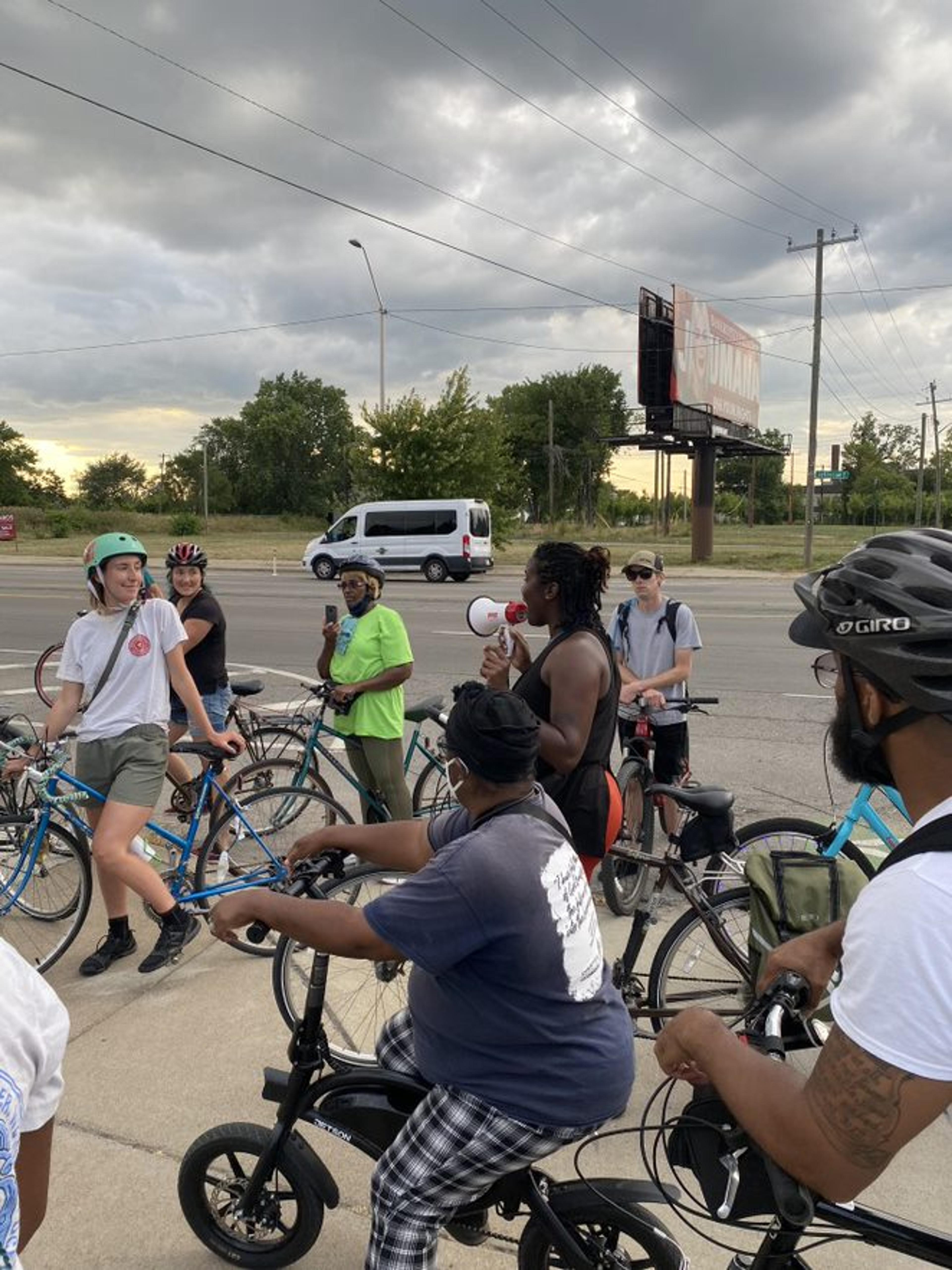
“We know there’s inequity in how people are experiencing climate change,” she said. “We know people who have preexisting health problems, who are poor and don’t have access to transportation – and quite frankly live in areas that are more polluted – we know that these things create social vulnerabilities inside of communities. There was one study that showed that if the average temperature in Detroit increased by just two degrees, we would lose more people in Detroit than were lost in Hurricane Katrina. Simply because of the social vulnerabilities, housing vulnerabilities, and climate vulnerabilities.”
The grant – which has a lifespan of 24 months – was awarded to ECN earlier this year, so the curriculum development process is still very much ongoing. Desired outcomes include:
- Building capacity to utilize social work skills and approaches within a community-based setting of low-income Black residents.
- Increasing knowledge of neighborhood history, culture, needs, and priorities.
- Providing climate-focused outreach.
- Partner with WSU to provide case management services to residents who are still recovering from extreme climate events and need continued resources and supports.
“Daily we all live, learn, work, and play in our physical environment which impacts our health,” said Myra Tetteh, senior program officer with the BCBSM Foundation. “ECN addresses social determinants of health by addressing climate inequities head on, and tending to the residents of Detroit that can’t always protect themselves and their families against environmental hazards. Climate change is a burgeoning issue that isn’t going away, we must address the challenges it brings. We’re proud to help ECN expand their climate-focused programming.”
Go to the BCBSM Foundation website to learn more about the Community Health Matching Grant Program, including eligibility, proposal requirements, and more. Check out more Foundation stories highlighting the amazing accomplishments Michigan nonprofits have made this year:
- Groundbreaking Program Impacts Breastfeeding Outcomes Among Black Families by Diversifying Southeast Michigan’s Lactation Consultant Field
- New Youth Peer Advocate at Detroit’s Ruth Ellis’s Center Offers Support, Relatability to At-Risk LGBTQ+ Young Adults
- PEARS Increases Early Autism Identification in Toddlers with Play-Based, Rapid Interactive Screening System
Photo credit: Eastside Community Network

